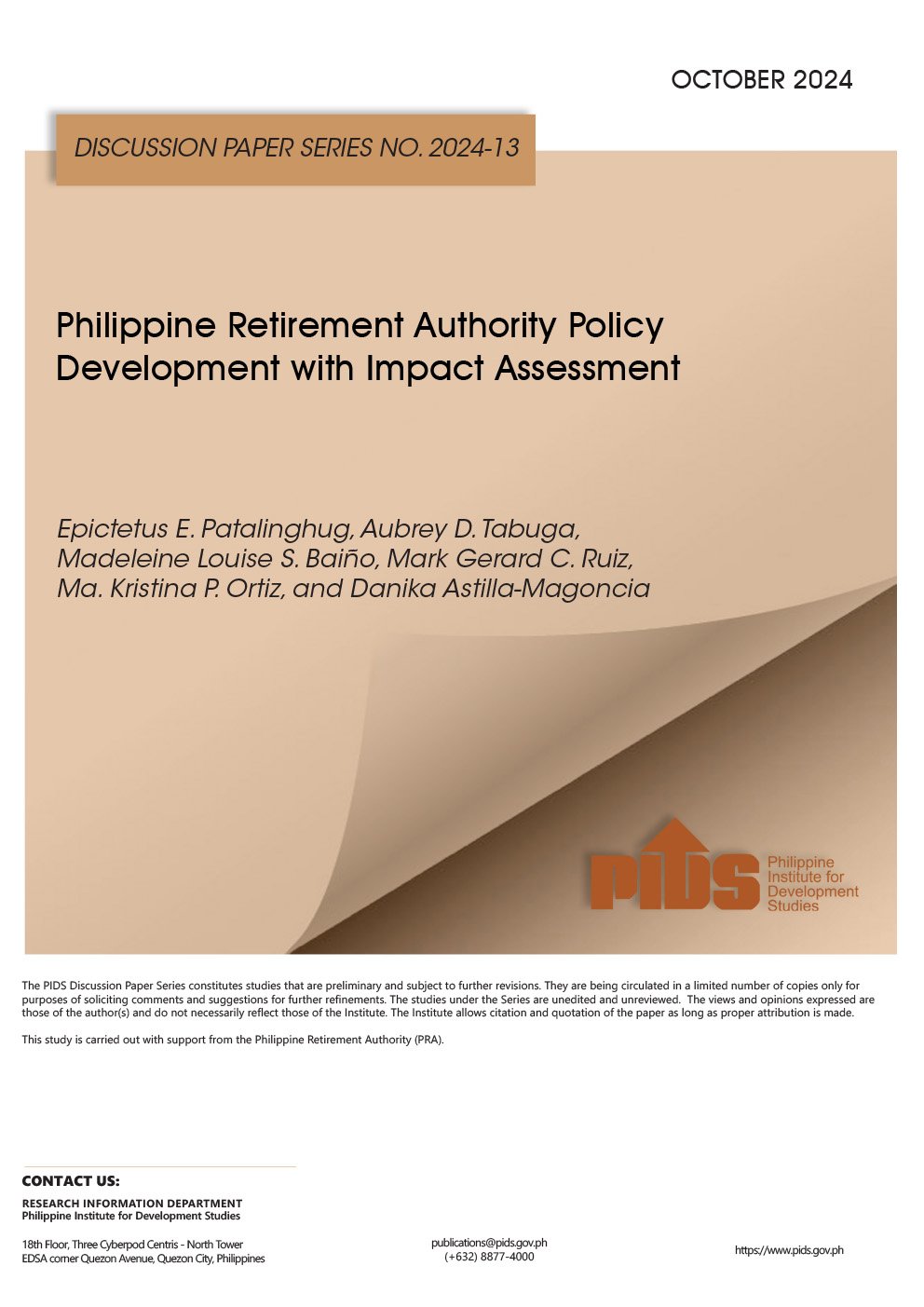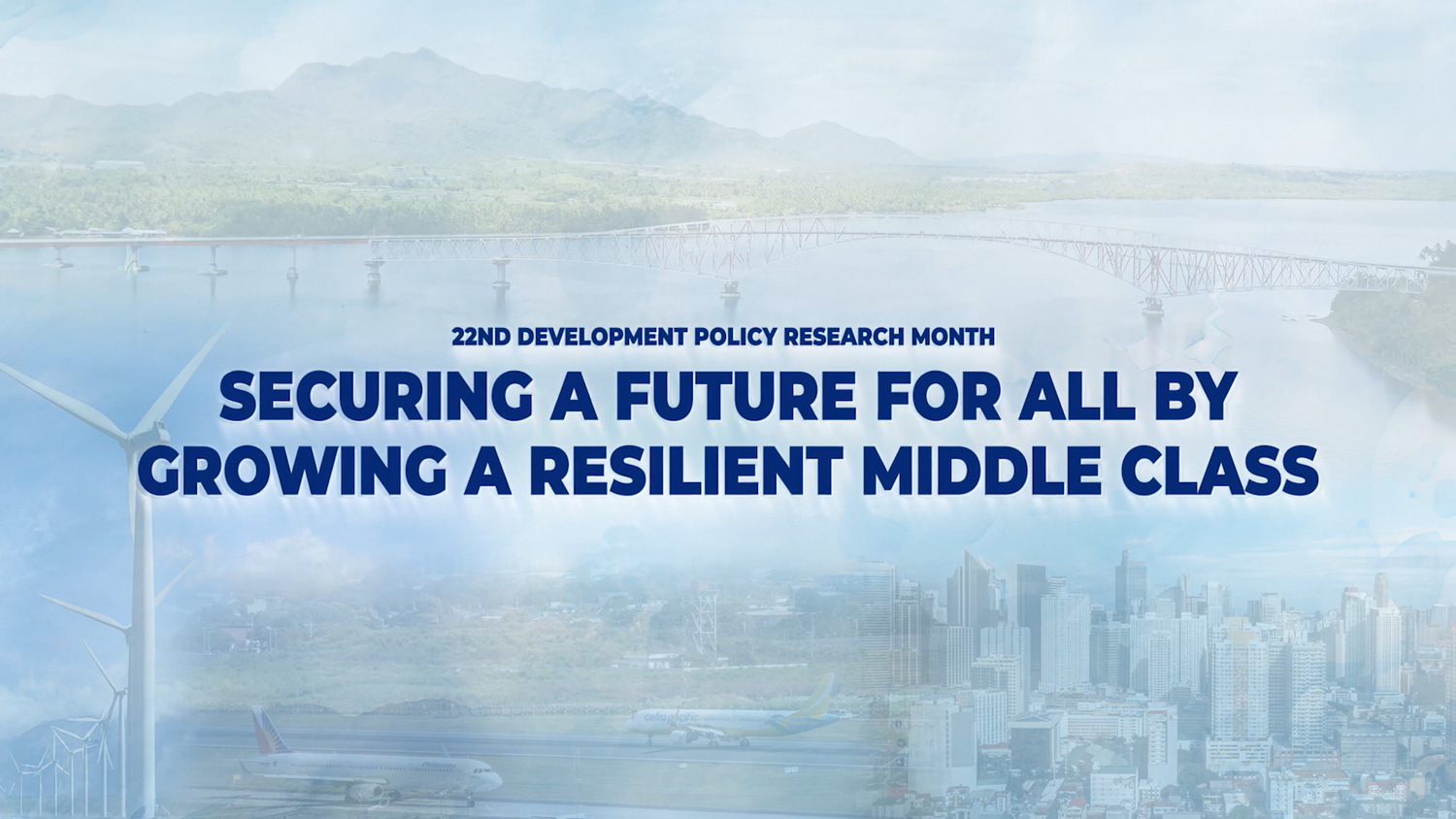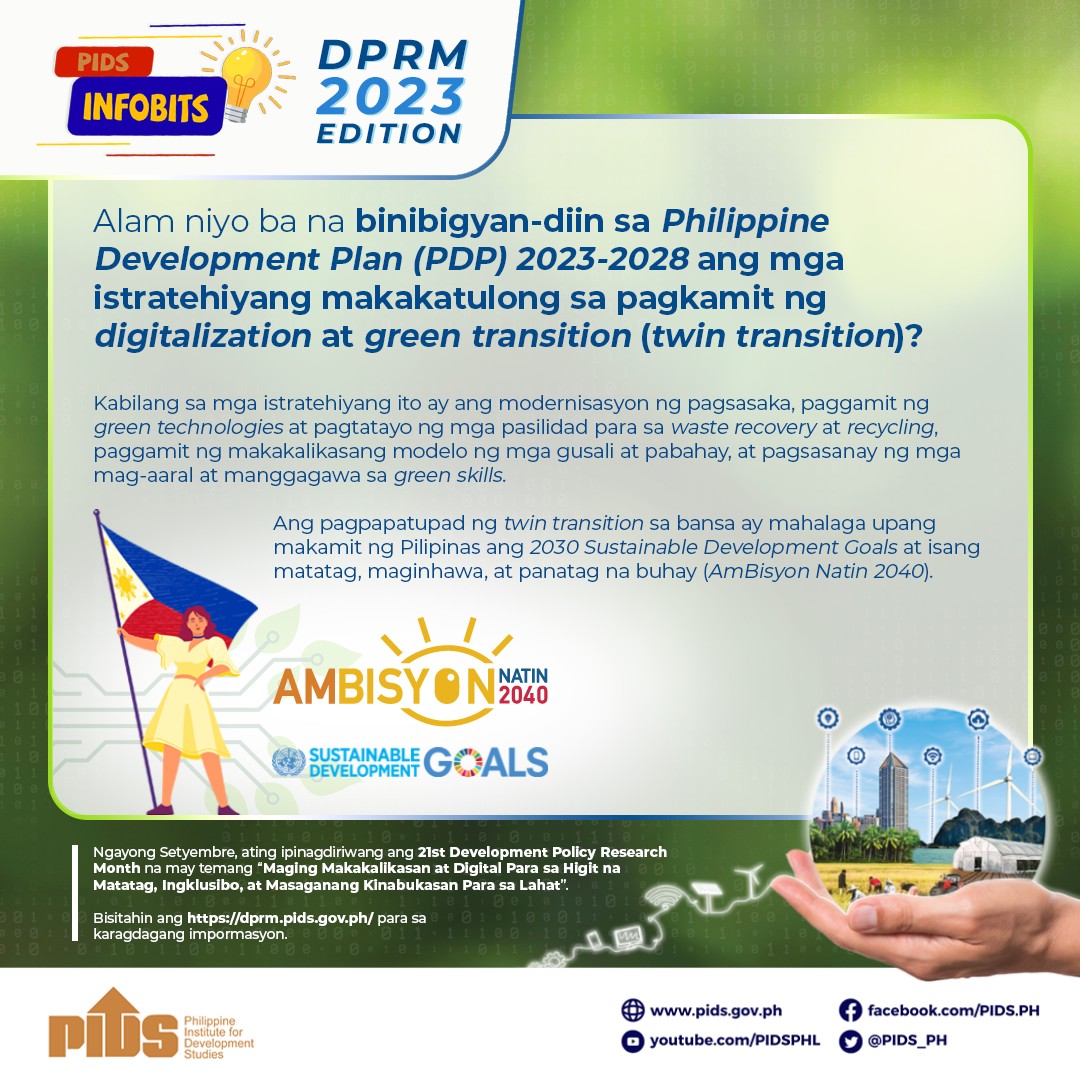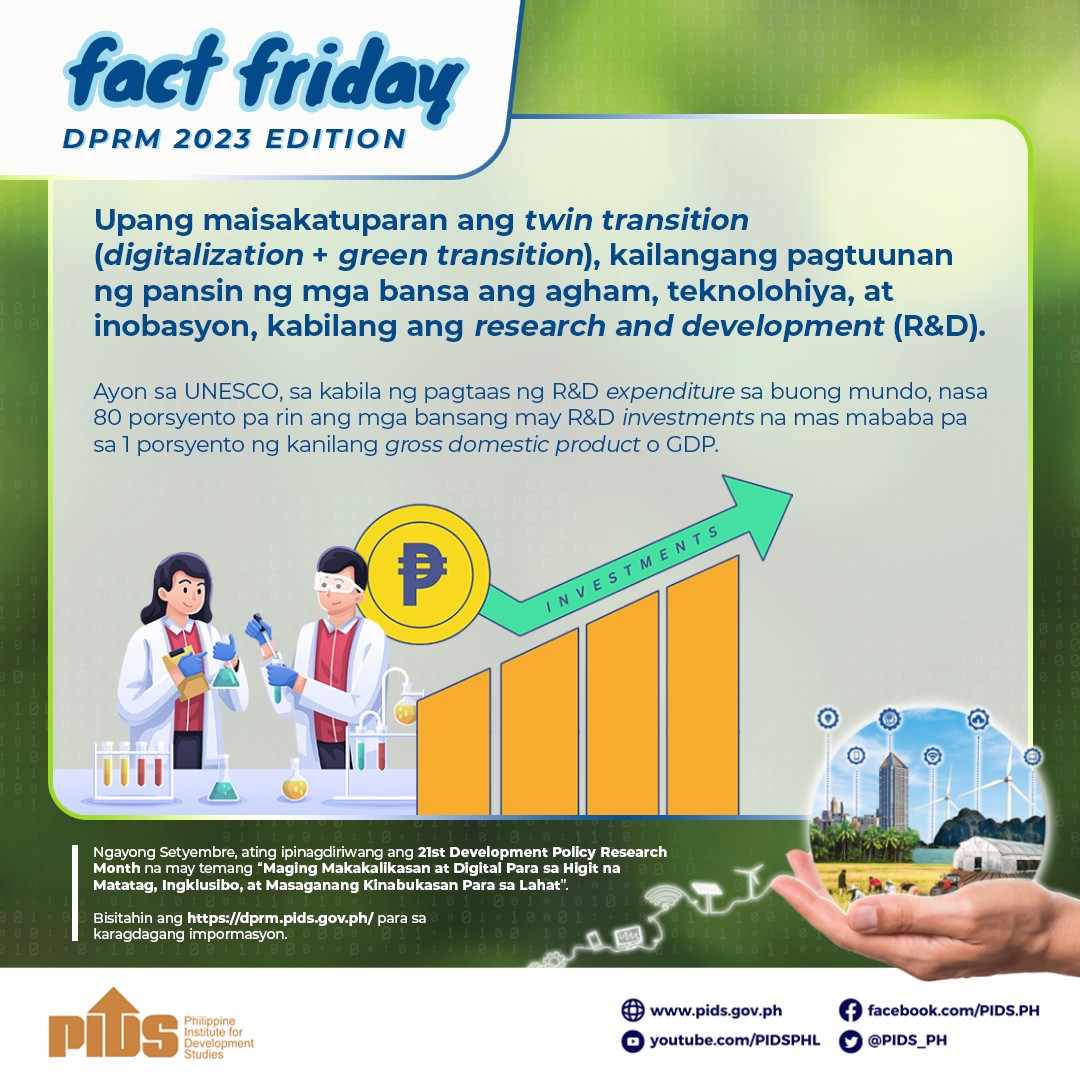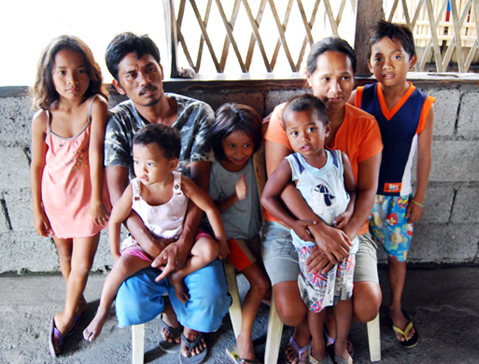
Investing in human capital is a key factor that can sustain the high growth rate the Philippines has been experiencing in the past years. Education and health are crucial in achieving labor effectiveness and productivity. The poor, however, are confronted by the high rate of unemployment, underemployment, and low incomes.
People with access to education and health have better chances of getting well-paying jobs. Education is a fundamental long-term solution to the Philippines’ development challenge. It is a way to escape poverty and achieve better future and higher incomes. “Addressing Late School Entry and other Demand-Side Barriers to Primary Schooling”, a policy note by a team led by Dr. Jose Ramon Albert of PIDS discussed educational disparities and the need to improve the quality of education aside from attaining universal primary education. It is crucial to keep children in school, maximize their learning, and ensure that they complete their schooling.
Despite the growth of the Philippine economy in the past years, the gap between the richest and the poorest Filipino households in terms of health financing, access to services, and health status has not significantly improved. A policy note titled “The Puzzle of Economic Growth and Stalled Health Improvement in the Philippines”, by PIDS consultant Oscar Picazo and co-authors stressed that while macroeconomic growth and financial stability are important, the goal of a country’s growth efforts should be human development in a sustainable environment.
On top of these is the pressing need for job creation. In 2013, the unemployment rate was 7.3 percent while underemployment stood at 19.8 percent. Given this backdrop, Drs. Aniceto Orbeta, Vicente Paqueo, and Leonardo Lanzona, in a PIDS study titled “Labor Policy Analysis for Job Expansion and Development” underscored the importance of addressing the jobs challenge through the massive expansion of poverty-reducing jobs and sustained human capital development through education and training. Dr. Rafaelita Aldaba, in “The Philippine Manufacturing Industry Roadmap: Agenda for A New Industrial Policy, High Productivity Jobs, and Inclusive Growth”, stressed that the manufacturing sector can provide higher wage and higher productivity jobs than the services sector. The manufacturing sector is vital for the country’s economic transformation that can create more opportunities to improve the quality of life of Filipinos.
To know more about PIDS research on human capital development, visit the SocioEconomic Research Portal for the Philippines. Simply type “education”, “health”, “jobs”, “human capital”, “poverty”, and related terms in the Search box.
Addressing Late School Entry and other Demand-Side Barriers to Primary Schooling
The Puzzle of Economic Growth and Stalled Health Improvement in the Philippines
Labor Policy Analysis for Jobs Expansion and Development
Economic Policy Monitor 2013: Addressing the Jobs Challenge toward Inclusive Growth
The Philippine Manufacturing Industry Roadmap: Agenda for New Industrial Policy, High Productivity Jobs, and Inclusive Growth
Where Are the Poor Employed? Profiling the Working Poor
Regional Integration, Inclusive Growth, and Poverty: Enhancing Employment Opportunities for the Poor
Review and Assessment of Programs Offered by State Universities and Colleges
Enhanced K to 12 Basic Education Program: Opportunities and Challenges
Schooling Disparities: an Early Life Lever for Better (or Worse) Equity in the Future
People with access to education and health have better chances of getting well-paying jobs. Education is a fundamental long-term solution to the Philippines’ development challenge. It is a way to escape poverty and achieve better future and higher incomes. “Addressing Late School Entry and other Demand-Side Barriers to Primary Schooling”, a policy note by a team led by Dr. Jose Ramon Albert of PIDS discussed educational disparities and the need to improve the quality of education aside from attaining universal primary education. It is crucial to keep children in school, maximize their learning, and ensure that they complete their schooling.
Despite the growth of the Philippine economy in the past years, the gap between the richest and the poorest Filipino households in terms of health financing, access to services, and health status has not significantly improved. A policy note titled “The Puzzle of Economic Growth and Stalled Health Improvement in the Philippines”, by PIDS consultant Oscar Picazo and co-authors stressed that while macroeconomic growth and financial stability are important, the goal of a country’s growth efforts should be human development in a sustainable environment.
On top of these is the pressing need for job creation. In 2013, the unemployment rate was 7.3 percent while underemployment stood at 19.8 percent. Given this backdrop, Drs. Aniceto Orbeta, Vicente Paqueo, and Leonardo Lanzona, in a PIDS study titled “Labor Policy Analysis for Job Expansion and Development” underscored the importance of addressing the jobs challenge through the massive expansion of poverty-reducing jobs and sustained human capital development through education and training. Dr. Rafaelita Aldaba, in “The Philippine Manufacturing Industry Roadmap: Agenda for A New Industrial Policy, High Productivity Jobs, and Inclusive Growth”, stressed that the manufacturing sector can provide higher wage and higher productivity jobs than the services sector. The manufacturing sector is vital for the country’s economic transformation that can create more opportunities to improve the quality of life of Filipinos.
To know more about PIDS research on human capital development, visit the SocioEconomic Research Portal for the Philippines. Simply type “education”, “health”, “jobs”, “human capital”, “poverty”, and related terms in the Search box.
Addressing Late School Entry and other Demand-Side Barriers to Primary Schooling
The Puzzle of Economic Growth and Stalled Health Improvement in the Philippines
Labor Policy Analysis for Jobs Expansion and Development
Economic Policy Monitor 2013: Addressing the Jobs Challenge toward Inclusive Growth
The Philippine Manufacturing Industry Roadmap: Agenda for New Industrial Policy, High Productivity Jobs, and Inclusive Growth
Where Are the Poor Employed? Profiling the Working Poor
Regional Integration, Inclusive Growth, and Poverty: Enhancing Employment Opportunities for the Poor
Review and Assessment of Programs Offered by State Universities and Colleges
Enhanced K to 12 Basic Education Program: Opportunities and Challenges
Schooling Disparities: an Early Life Lever for Better (or Worse) Equity in the Future

